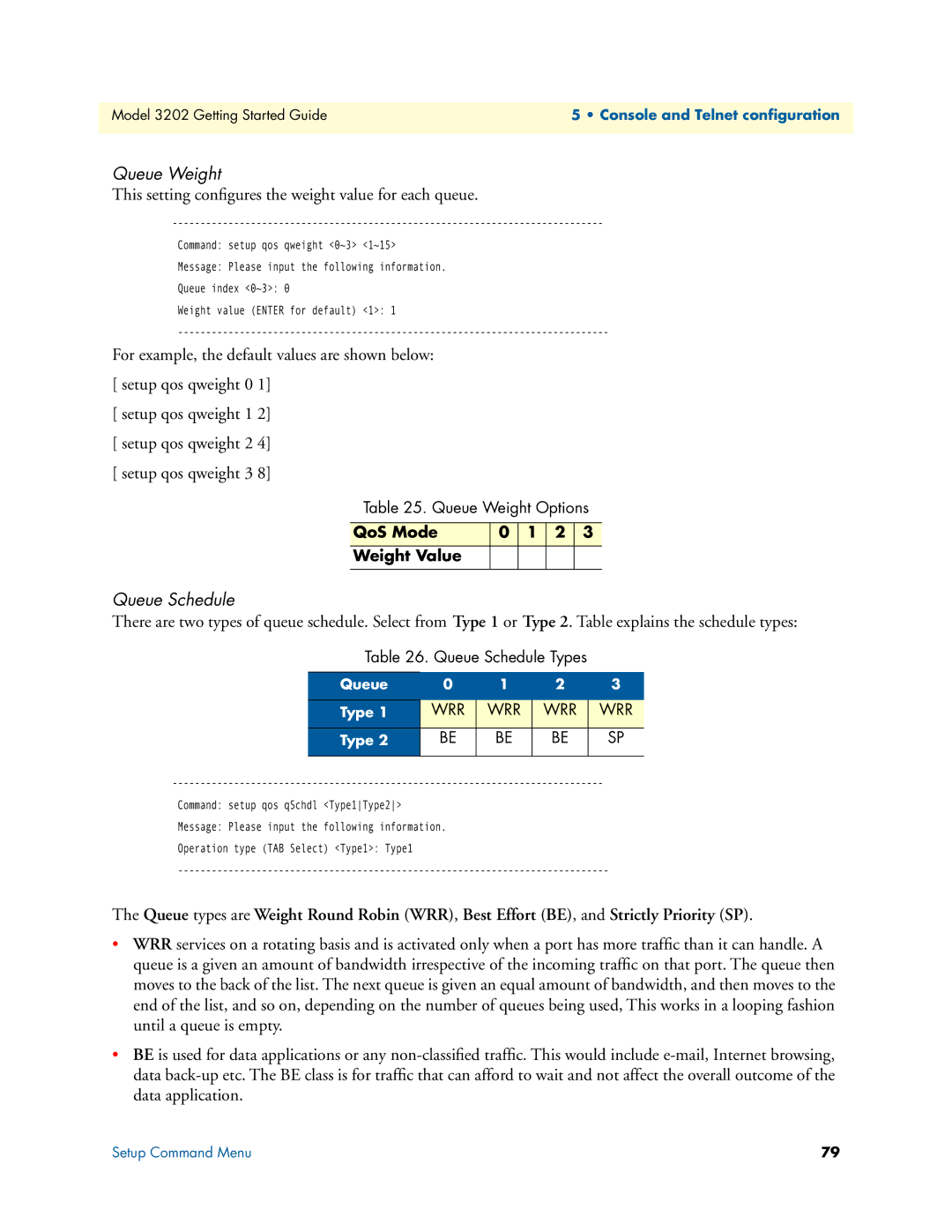
Model 3202 Getting Started Guide5 • Console and Telnet configuration
Queue Weight
This setting configures the weight value for each queue.
Command: setup qos qweight <0~3> <1~15>
Message: Please input the following information.
Queue index <0~3>: 0
Weight value (ENTER for default) <1>: 1
For example, the default values are shown below: [ setup qos qweight 0 1]
[ setup qos qweight 1 2] [ setup qos qweight 2 4] [ setup qos qweight 3 8]
Table 25. Queue Weight Options
QoS Mode | 0 | 1 | 2 | 3 |
Weight Value |
|
|
|
|
|
|
|
|
|
Queue Schedule
There are two types of queue schedule. Select from Type 1 or Type 2. Table explains the schedule types:
Table 26. Queue Schedule Types
Queue | 0 | 1 | 2 | 3 | |||
| WRR |
| WRR |
| WRR |
| WRR |
Type 1 |
|
|
| ||||
|
|
|
|
|
|
|
|
Type 2 | BE |
| BE |
| BE |
| SP |
|
|
|
|
|
|
|
|
Command: setup qos qSchdl <Type1Type2>
Message: Please input the following information.
Operation type (TAB Select) <Type1>: Type1
The Queue types are Weight Round Robin (WRR), Best Effort (BE), and Strictly Priority (SP).
•WRR services on a rotating basis and is activated only when a port has more traffic than it can handle. A queue is a given an amount of bandwidth irrespective of the incoming traffic on that port. The queue then moves to the back of the list. The next queue is given an equal amount of bandwidth, and then moves to the end of the list, and so on, depending on the number of queues being used, This works in a looping fashion until a queue is empty.
•BE is used for data applications or any
Setup Command Menu | 79 |
